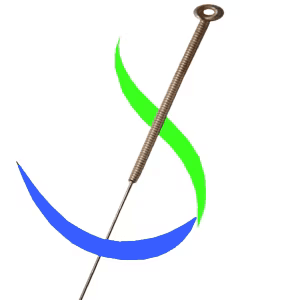Rheumatoid arthritis is a chronic autoimmune condition that primarily affects joints, but its reach can extend to the whole body. Understanding RA as an autoimmune disease helps students and patients recognize that inflammation, immune misdirection, and tissue damage share a common pattern. This article offers a concise, study-oriented overview.
Rheumatoid Arthritis: Understanding Autoimmune Disease
Rheumatoid arthritis is an autoimmune disease in which the body’s immune system mistakenly attacks the synovial lining of joints. This inflammation causes pain, swelling, and gradual erosion of cartilage and bone. Unlike wear-and-tear arthritis, RA often appears in a symmetrical pattern, affecting joints on both sides of the body such as the wrists, fingers, and toes. The disease is systemic, with fatigue, low-grade fever, anemia, and mood changes reflecting immune activity beyond the joints. Genetic and environmental factors, including smoking and certain infections, can raise risk by shaping immune responses. Early treatment aims to calm inflammation, preserve function, and prevent long-term damage, usually with DMARDs, biologics, and supportive therapies like physical therapy and exercise. Education about triggers, prognosis, and adherence helps patients participate in care, improving outcomes and daily living in the long term.
Important Note: How to Identify Autoimmune Disease Symptoms
Autoimmune diseases can start subtly, so notice how your body feels over weeks to months. Look for persistent joint stiffness, swelling lasting beyond morning routines, and new pains that move between joints. Fatigue, low fever, and unplanned weight changes can accompany immune activity. Because many autoimmune conditions share symptoms, a careful medical history, exam, and targeted tests are essential. If symptoms persist for more than a few weeks, especially if they are symmetrical, involve the fingers or wrists, or come with systemic signs, seek an evaluation. Important note: only a clinician can diagnose an autoimmune disorder, and early testing with inflammatory markers, autoantibodies such as rheumatoid factor or anti‑CCP, and imaging as indicated can guide management. An open discussion with your healthcare team can lead to faster referrals and better outcomes.
In understanding rheumatoid arthritis as an autoimmune disease, you gain clarity about symptoms, treatment options, and the importance of early, proactive care to protect your joints and daily life.
To know the cure and care for autoimmune disease, Contact Acubiosis, who are the most trusted Acupuncture treatment provider in Pune.#Acupuncture #Acubiosis #AcubiosisCare #AutoImmuneDisease #RheumatoidArthritis #AcupunctureInPune #AcupunctureInKothrud




Schedule your appointment now!